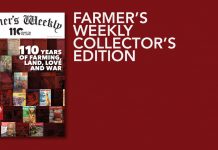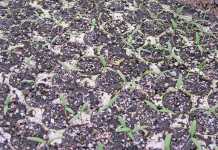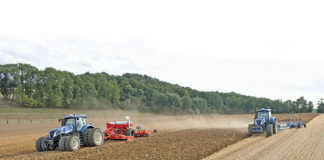I’m not talking about people hell-bent on getting land and then forgetting about the animals on that land, no, I’m talking about people who love the land, who paid in blood sweat and tears to build up a farming business, such as the farmers I met on my recent trip to Namibia.
Namibia is a hard land. As the old Südwester- lied goes: “Hard wie Kameeldorn holz ist unser land” (Hard as camel-thorn wood is our land). But Boet, the people of Namibia are beyond comparison. They are kind, hard-working and graciously hospitable.
And that was my experience during my two-week working holiday trip recently. I’ve visited men and women who know what it is to struggle through devastating droughts and adverse conditions. They have learnt to farm in conjunction with the weather and the environment. And they know how to spot opportunities and how to go for it! Nee Boet, these Namibians are just as tough as the South Africans.
Let’s take Limousine and Brahman breeder Sigi Baas, who farms on Ombuerendende along the White Nossob, some 120km outside Windhoek in the Hochfeld region. Sigi comes from pioneering stock. He tells the story of his grandparent’s acquisition of the farm.
“My grandparents emigrated from Germany and obtained the land from the German authorities in the then Südwest Africa. However, access to the land was only allowed if the farmer could ensure a steady water supply. My grandparents consequently built a dam with their bare hands, an ox and a ‘skrop’ [scraper].
“For months and months on end they emptied out a low-lying stretch of land and built a dam wall. This dam is still in use today and remains one of our main reservoirs on the farm.”
Marco Seefeldt, the 2013 Namibian Agricultural Union Young Farmer of the Year and his wife Regine farm not far from Sigi. These two are pioneers in there own right. If there is a plan to be made, Marco and Regine will make it.
They are extremely hard workers always on the lookout for new opportunities to add value to their farming business. And the nice thing is that Regine is part and parcel of the farming operations. No wilting wall-flower, this one. But that’s the case with the majority of Namibian farmers’ wives – they know what it is to work hard and cope with whatever challenges the country poses.
And the legendary Namibian hospitality is beyond comparison. I can vouch for that. Thanks to the Baas and Seefeldt families who received me as the Farmer’s Weekly representative so graciously. For me it was an honour indeed to meet and deal with our Namibian counterparts.










